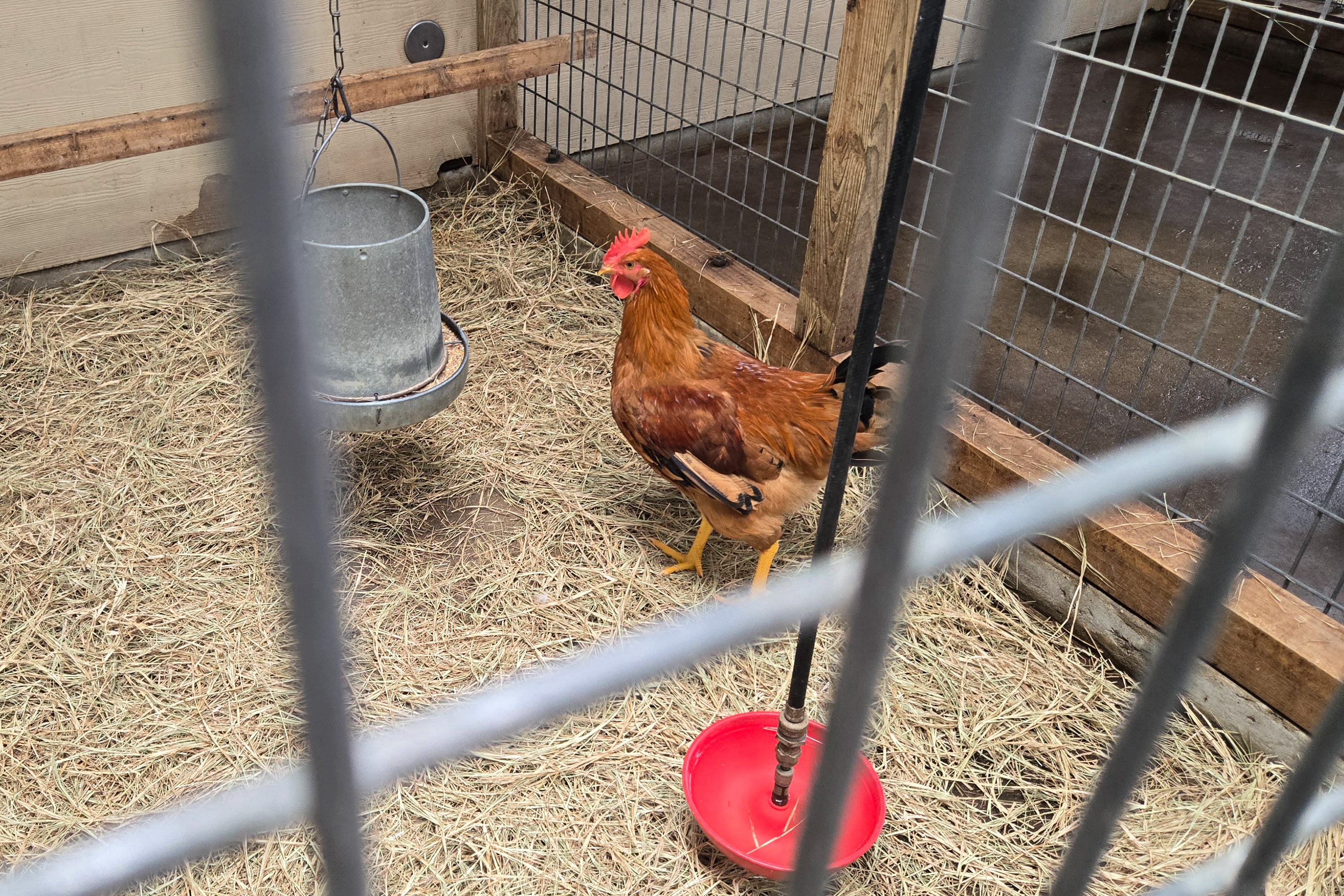
The Department of Health and Human Service is pulling millions of dollars in funding for a human bird flu vaccine developed by Covid vaccine-maker Moderna.
Before President Donald Trump took office for his second term, the Biden administration had awarded $766 million to the Massachusetts-based drugmaker. They invested $176 million last summer, and tacked on another $590 million in January.
“While the termination of funding from HHS adds uncertainty, we are pleased by the robust immune response and safety profile observed in this interim analysis of the Phase 1/2 study of our H5 avian flu vaccine and we will explore alternative paths forward for the program,” Moderna CEO Stéphane Bancel said in a statement. “These clinical data in pandemic influenza underscore the critical role mRNA technology has played as a countermeasure to emerging health threats.”
HHS spokesman Andrew Nixon assured The Independent that the decision was made after a “rigorous review.”
“This is not simply about efficacy — it’s about safety, integrity, and trust,” he said. “The reality is that mRNA technology remains under-tested, and we are not going to spend taxpayer dollars repeating the mistakes of the last administration, which concealed legitimate safety concerns from the public.”
Nixon also said that the move signals a “shift in federal vaccine funding priorities with better-established safety profiles and transparent data.”
The department said Moderna’s project does not meet the scientific standards or safety expectations required for continued federal investment, and that the decision reflects broader concerns about mRNA use. It noted that there are three other avian flu contracts under the National Prepandemic Influenza Vaccine Stockpile program.
Researchers have been studying and working with mRNA vaccines for decades, for flu, Zika, rabies, and cytomegalovirus, according to the Centers for Disease Control and Prevention. The vaccines work by using mRNA, a type of RNA, that is created in a laboratory to teach our cells how to make a protein that triggers an immune response inside our bodies.
The news comes amid the continued and pervasive spread of H5N1 bird flu, which has killed millions of birds, mammals, and other animals across the U.S. in recent years.
In response to infections that resulted in a nationwide egg shortage, the Trump administration’s Department of Agriculture included vaccine investments in its $1 billion-dollar plan, allocating up to $100 million for research in that area.
“USDA will be hyper-focused on a targeted and thoughtful strategy for potential new generation vaccines, therapeutics, and other innovative solutions to minimize depopulation of egg laying chickens along with increased bio-surveillance and other innovative solutions targeted at egg laying chickens in and around outbreaks,” it said.

Of course, that proposal came before vaccine-skeptic and HHS Secretary Robert F. Kennedy, Jr., made his own: mass infections. Experts said that was a bad idea. Since then, however, reports of new human cases have stopped. That’s been puzzling to experts. To date, 70 people have been infected, most of whom are farm workers.
“We just don’t know why there haven’t been cases,” Jennifer Nuzzo, director of the Pandemic Center at Brown University, told NPR. “I think we should assume there are infections that are occurring in farmworkers that just aren’t being detected.”
It may also be tied to seasonality, with cases peaking in the fall and winter as bird migrate.
So, the need for a vaccine for humans, such as Moderna’s mRNA-108, likely remains. The administration’s decision comes as Moderna announced positive interim results from an early-stage trial of the vaccine.
“What we learned clearly during the last influenza pandemic is there are only a few companies in the world that make flu vaccines, which means in a pandemic there won’t be enough to go around,” Nuzzo said, reacting to the news. “If the U.S. wants to make sure it can get enough vaccines for every American who wants them during a pandemic, it should invest in multiple types of vaccines instead of putting all of our eggs in one basket.”
With reporting from The Associated Press




